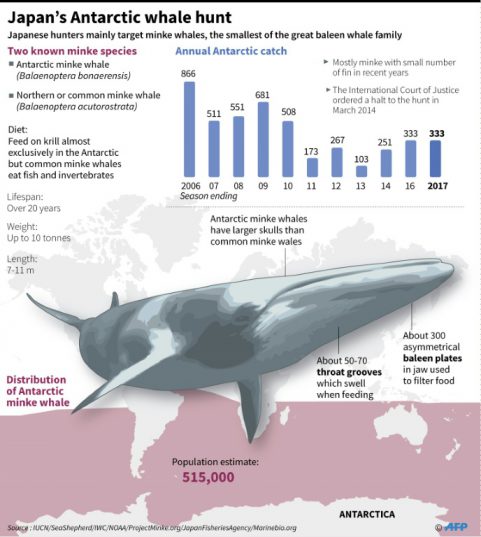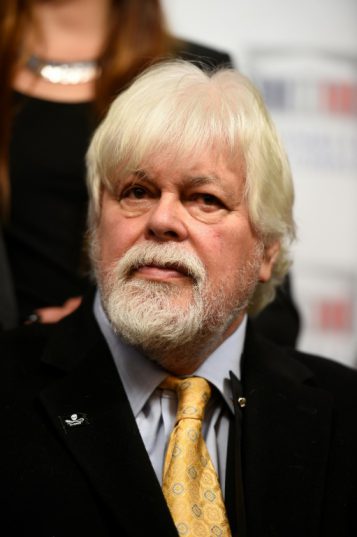PowerBall and PowerBall Plus results: Friday, 13 December 2024
The organisation has waged an often violent 12-year high-seas battle against whaling in the Southern Ocean, claiming success for saving thousands of the giant mammals and bringing the slaughter to world attention.
But the group’s founder Paul Watson said his ships — which usually leave from Australia — would not sail this year, with different strategies and tactics needed to hinder the hunt.
“What we discovered is that Japan is now employing military surveillance to watch Sea Shepherd ship movements in real-time by satellite and if they know where our ships are at any given moment, they can easily avoid us,” he said in a statement.
“We cannot compete with their military-grade technology.”
He claimed that for the first time this year, Tokyo also planned to deploy its armed forces to defend the whalers, making it increasingly difficult to compete with a cashed-up “major economic superpower”.

Japan’s Antarctic whale hunt
“The decision we have had to face is: do we spend our limited resources on another campaign to the Southern Ocean that will have little chance of a successful intervention or do we regroup with different strategies and tactics?,” he said.
“If something is not working the only recourse is to look for a better plan, because when a plan no longer works, the only alternative is an improved course of action.
“We need to formulate this new plan and we will.”
He hit out at the United States, Australia and New Zealand for not doing enough to help, singling out Canberra for “obstructing Sea Shepherd’s ability to raise funds by denying our charitable status”.
– ‘Exposed and humiliated’ –
Japan has previously sought to close down the anti-whaling campaigns in court, saying Sea Shepherd activists rammed their ships, snared propellers with ropes and harassed crew with paint and stink bombs.
The conservationists in turn complained that the whalers had thrown stun grenades at them, and tried to sabotage their boats.

Environmental activist and Sea Shepherd group’s founder, Paul Watson
A Japanese fisheries agency official said the department was aware of Sea Shepherd’s announcement.
“But, at this stage, we don’t know if they will really stop their campaign,” he told AFP.
“There are also other anti-whaling groups so we may be disrupted by them. We’ll continue to carefully monitor the situation.”
Japan is a signatory to the International Whaling Commission’s moratorium on whaling in force since 1986. But it exploits a loophole allowing whales to be killed for the purposes of “scientific research”, making no secret of the fact that they often end up on dinner plates.
Tokyo was forced to call off the 2014-15 hunt after the International Court of Justice ruled its annual Antarctic foray was a commercial hunt, masquerading as science.
It resumed in late 2015 with cuts to the target catch number, but it still returned with more than 300 minke whales.
Japan has hunted whales for centuries, and their meat was a key source of protein in the immediate post-World War II years when the country was desperately poor.
But consumption has dramatically declined in recent decades, with significant proportions of the population saying they “never” or “rarely” eat whale meat.
Despite calling off their campaign to disrupt the hunt, Watson said it was satisfying that Japan had been “exposed and humiliated” by Sea Shepherd.
Download our app and read this and other great stories on the move. Available for Android and iOS.